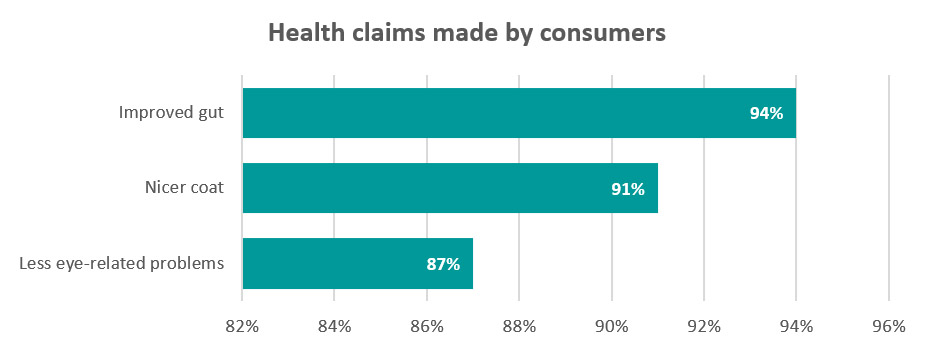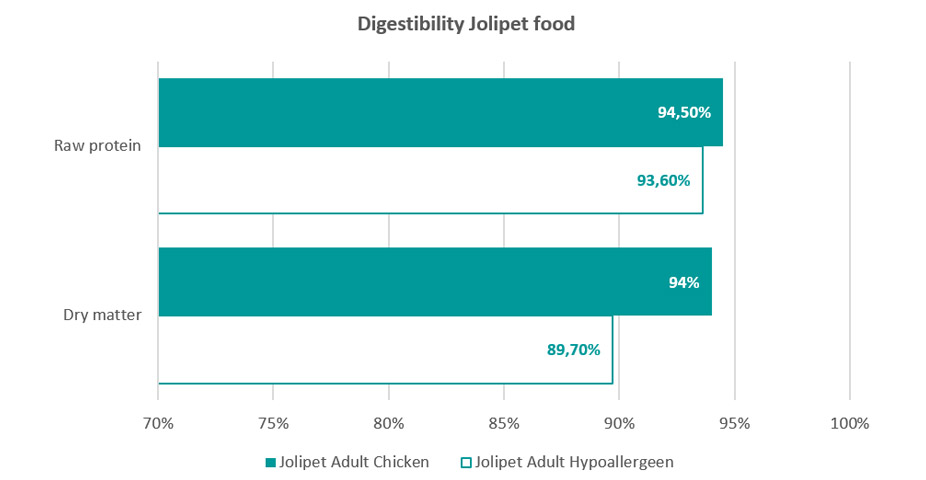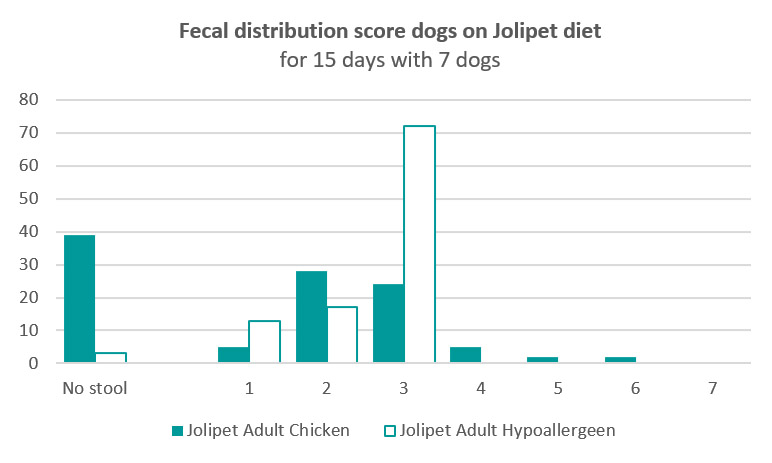The natural protection
Hund ist was Hund isst
According to an old German saying, you are what you eat. Even though it was not meant literally, we at FreshFrozen are convinced that a healthy diet, combined with a healthy exercise pattern, is one of the main pillars for a healthy life. And of course, this is no different for our four-legged friends.
In addition, the fact that FreshFrozen food is healthy is no longer something that only owners who feed FreshFrozen today know. An increasing number of academic studies indicate that FreshFrozen food is better for your dog's health.
Academic research
Italian academic research indicates that the bacteria in our food stimulate the intestinal flora. This creates a so-called Yakult-effect, which makes the dog feel better in his coat and makes it easier for him to absorb the nutrients in the food. And this without added probiotics.
A study by the University of Helsinki shows that 91% of people who give their dog FreshFrozen food say that it gives their dog a better coat. This finding is based on a survey of 632 dog owners. Furthermore, 94% of owners stated that FreshFrozen food has a positive impact on the gastrointestinal tract, which is in line with the findings of the Italian study.

In addition, a Swiss study showed that dogs on FreshFrozen food had healthier teeth than dogs on kibble. The same study also indicated that the stool quality of dogs on FreshFrozen food was better than those of dogs on kibble.
Finally, our own research carried out at the University of Ghent shows that our Jolipet diets have an exceptionally high digestibility of the nutrients. Our research showed that the digestion coefficient of the Jolipet diets was between 90 and 94%. This means that if your dog eats 100g, he will only have 6 to 10g of stool. The digestion coefficient of the proteins was even higher and was 94%. In other words, what we feed your pet is absorbed to the maximum. These figures are much lower for kibble.

In addition, the study at Ghent University also showed that the consistency of the stool was very good. In an often-used fecal scoring system, score 1 is considered too hard and score 7 is considered watery diarrhea. A score 2 is ideal. Both Jolipet foods tested scored 2 or 3 almost every time (52% of the days in the case of Jolipet Adult Chicken; 89% in the case of Jolipet Adult Hypo). And what was most striking was that there were many days without any stool (almost 40% of the test days in the case of Jolipet Adult Chicken). But that is not surprising given the high level of digestion.

And how about kibble?
The impact of protein overheating on the production of Advanced Glycation End Products (AGEs) is now being investigated. AGEs is a collective term for proteins that have been irreversibly damaged by the anchoring of sugar groups (such as glucose) and the degeneration of the protein. Heating has been shown to increase the production of AGEs. AGEs have been linked to the promotion of a range of health problems, including cancer, obesity, diabetes and kidney failure.
An analysis of different cat and dog foods showed that AGEs were 38 times (cat food) to 122 times (dog food) higher than those normally consumed by humans. Consumption of raw food by pets would help prevent excessive consumption of AGEs. However, further research on this subject is recommended.
And we haven't even mentioned the impact of the sugars in many of the prepared foods on the (excess) weight of our dogs and cats, with all the consequences that entails...
